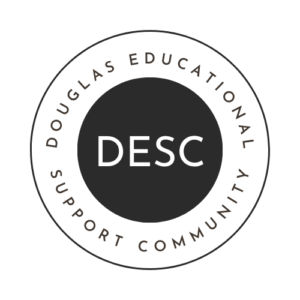
Generative AI (Artificial Intelligence) technology is evolving quickly, which means our understanding of it and its impacts on teaching and learning are changing daily. We offer the following guidelines for faculty as a starting point, recognizing that they are fluid and subject to evolution as we continue to learn and adapt to new GenAI technologies.
Faculty, as educators and knowledgeable experts in their fields, have the agency to determine if GenAI is used in their teaching practice in accordance with the values of Douglas College.
When determining its use for teaching and learning, consider the following areas:
Human-Centred Use
- Use of Generative AI should enhance, not replace, human connectedness and should be used to ensure equity and advance quality experiences in the classroom. GenAI use should be appropriate to the context and meaningfully integrated into the course to support student learning.
Ethical and Safe Use
- GenAI is known to reproduce the prejudices and biases of its sources and may not be representative of diverse perspectives.
- Faculty need to review all GenAI output for accuracy and credibility.
Risk Assessment
- Faculty should be aware there are limitations such as misinformation, fabrications, biases, and stereotypes.
- Faculty should be aware there are ethical concerns involving data management, data sharing, data sovereignty for Indigenous communities, and sustainability.
- Faculty should also consider how to centre decolonization, equity, and inclusion in their approaches to integrating GenAI, especially how GenAI may reduce or amplify existing inequities in their classroom.
Accountability and Transparency
- Faculty are responsible for the GenAI-generated content they incorporate into their curriculum and teaching practice.
- Faculty should consider modelling the appropriate acknowledgement of GenAI use through documentation and/or citation when using GenAI in your own work.
- Faculty should be direct and specific about what GenAI tools learners are permitted to use and the reasons for any restrictions.
- The use of GenAI by students for class activities and assignments is voluntary unless it is part of a software solution licensed by Douglas College, such as Microsoft Copilot. For students with concerns, negotiate a mutually agreed upon alternative.
Privacy and Confidentiality
- When engaging with GenAI tools, faculty are responsible for the information they share with the tool.
- Student, faculty and colleagues’ work may not be shared in GenAI tools, in part or in full, without their informed consent. This includes using GenAI as a tool to assess or grade student work. For example, do not use the tool to detect if they have used GenAI.
- Confidential, personal or copyrighted information should not be submitted into GenAI tools.
Alignment with Audience / Use
- Faculty should outline to learners appropriate and allowable usage of GenAI within each course. This should be available to students in both the course outline and assignment instructions.
- Consider how GenAI use aligns with learning outcomes, the learning experience, and the preparation of learners for future work.
- Faculty should consider teaching students GenAI literacy, so they are able to use it critically and responsibly. The Douglas College Library has some resources on this area.
This document is an adaptation of Generative Artificial Intelligence Guidelines for Faculty by the Centre for Faculty Development and Teaching Innovation at Centennial College and is used under a Creative Commons BY-NC 4.0 licence. Changes include links and references to Douglas College related information where necessary.
